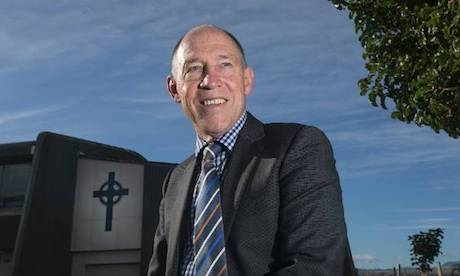St Patrick’s College Wellington was one of four schools Stuff journalist Rachael Thomas asked recently how they teach sex and sexuality.
The Rector of St Patrick’s, Neal Swindells, told her the Catholic perspective still plays a huge part.
However, he believes that creating a sense of guilt was ” the worst thing the Catholic church did in the 1960s and 70s” . This is no longer occurring, he says.
“I don’t think our kids have that now, and I don’t think the church authorities would want us to have it.”
Swindells told Thomas he did not like the word abstinence.
“I always like to say your sexuality is a gift, it’s something precious, and the church teaches us we should save it till we’re married.
“But we also understand not everyone can do that, and we’re not sitting in judgment.
“In a way, the new Pope has given us considerable freedom to try to be relevant to the kids and the times that we’re teaching in.”
Different types of contraception – including the IUD, the pill and the emergency contraceptive are taught at the school under an umbrella of “fertility awareness”.
Director of religious education Sarah Parkinson is realistic about what students are up to.
She knows there are some sexually active year nines at the school, she knows what research says about pornography and she knows some students are gay.
Recently a student stood up in assembly and said they wanted to start an LGBT group. Now it has about ten members and roughly four staff who support it.
The students say accepting minority groups all comes down to the greatest commandment – treat others as you would like to be treated.
“It coincides with when we get taught about human dignity – everyone has the same value of life,” year 12 student Bernard Tolovaa says.
Sexuality education is one of seven key areas of learning in Health and Physical Education in the New Zealand Curriculum.
In December 2001 it became a requirement for sexuality education to be taught within a broader programme up to and including Year Ten.
At senior levels, students’ achievements can be assessed against unit or achievement standards within the National Qualifications Framework.
Boards of trustees are required to consult their community at least every two years on how the school intends to implement their draft health curriculum.
Schools try hard to respect differences in culture and religion.
A parent or caregiver has the right to withdraw their child from particular parts of sexuality education by writing to the principal.
Source
